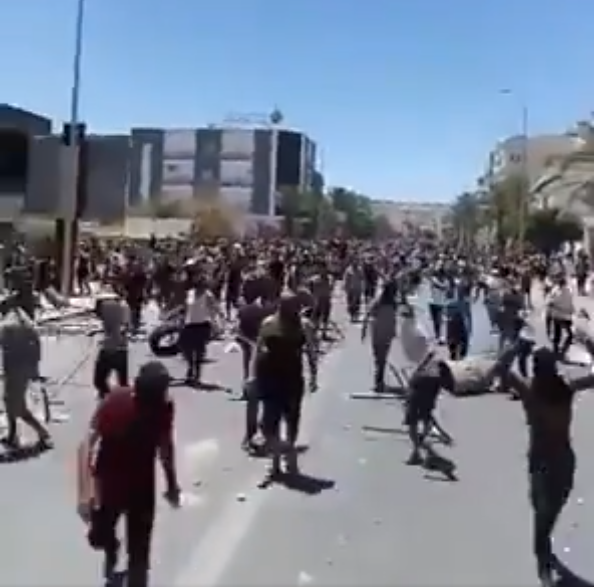Protests in Tunisia demanding jobs which have been largely peaceful until now have turned violent as an activist was arrested. For weeks protesters camped in the southern Tataouine, as they demanded that the authorities fulfill a 2017 promise to provide jobs in the gas and oil sector to thousands of unemployed.
They blocked roads and prevented tanker trucks from entering the El-Kamour pumping station. Violence erupted after the arrest of an activist "wanted" by the authorities, said the governor of Tataouine, Adel Werghi, according to France 24.
The arrested activist was identified as Tarek Haddad, said a spokesman for the protesters. A correspondent said the demonstrators had demanded his release as they burnt down tires and pelted stones at security forces.

Tear Gas
The security forces responded with tear gas and tension prevailed throughout the afternoon with intermittent clashes. Ten people were arrested after some protesters tried attacking police stations with Molotov cocktails, according to the interior ministry.
The governor called it "illegal" for the protesters to block roads with tents they set up in the middle of the streets. Similarly, in 2017, protesters blocked the same pumping station for three long months demanding jobs.
The sit-in protest of 2017 came to an end after the employment minister signed a deal with representatives, mediated by the Tunisian trade union confederation UGTT. The government pledged to invest 80 million dinars (Tunisian currency) per year (nearly $28m).
UGTT said the promise was never kept. They have called for a "general strike" in the region on Monday. In a statement, they said that the strike (work stoppage) was to denounce the "excessive and unjustified use of force" against protesters.
Tunisian Spark
Governments fear such protests for their potential to spin out of control. Back in 2010 mid-December, a street vendor set himself on fire outside a government office in Sidi Bouzid, as a protest against harassment by authorities. The incident inspired a wave of revolt in the country.
Within a month, Tunisia's ruler Zine al-Abidine Ben Ali fled to Saudi Arabia. This victory led to the spread of what came to be known as the Arab Spring in many surrounding countries in 2011.









